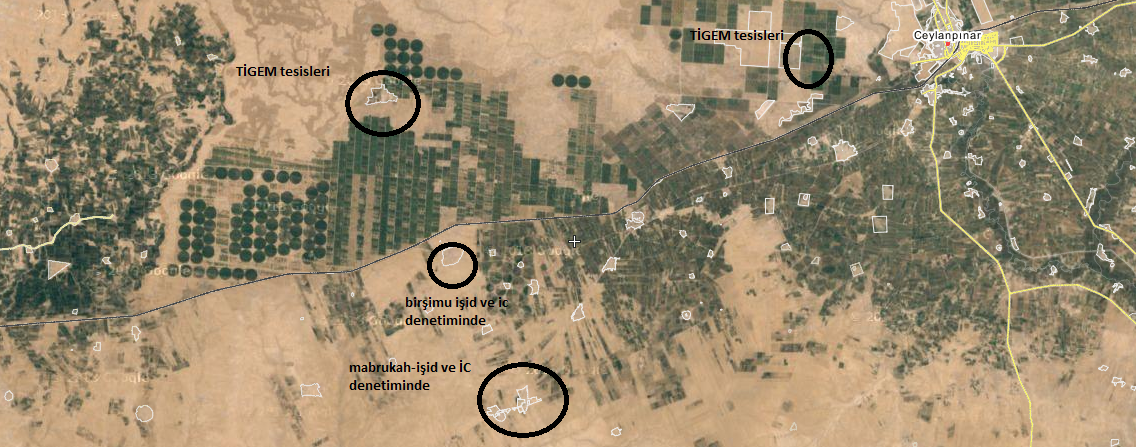Hewler'de Batı Kürdistan (Rojava) ile ilgili toplantı
Kurdish fighters unite against Syria rebels: activist
Friday, 23 November 2012

Kurdish fighters have agreed to join forces in a standoff with hundreds of Islamist rebels in northeastern Syria, an activist opposed to President Bashar al-Assad said on Friday.
Hundreds of fighters loyal to the Kurdish Democratic Union Party (PYD) - which has close ties to Turkey’s rebel Kurdistan Workers’ Party (PKK) - have been locked in fierce battles with fighters of the jihadist Al-Nusra Front and allied Ghuraba al-Sham group in Ras al-Ain on the border with Turkey.
“The two Kurdish national councils in western Kurdistan have agreed in Iraq to create a united military force, bringing together PYD forces and other Kurdish dissidents” in Syria, said the activist, who identified himself as Havidar.
Hundreds of fighters loyal to the Kurdish Democratic Union Party (PYD) - which has close ties to Turkey’s rebel Kurdistan Workers’ Party (PKK) - have been locked in fierce battles with fighters of the jihadist Al-Nusra Front and allied Ghuraba al-Sham group in Ras al-Ain on the border with Turkey.
“The two Kurdish national councils in western Kurdistan have agreed in Iraq to create a united military force, bringing together PYD forces and other Kurdish dissidents” in Syria, said the activist, who identified himself as Havidar.
The two councils are the main Kurdish organizations active in Syria.
On July 11, the Kurdish National Council, which comprises several Syrian Kurdish parties, met in Iraq with the People’s Council of Western Kurdistan, which is close to the PYD.
At the meeting they decided to form the Supreme Kurdish Council.
Friday’s agreement was announced a day after the Ghuraba al-Sham called in a video posted on the Internet for Islamist volunteers to flock to Ras al-Ain for a drive on the provincial capital Hasakeh, whose population is majority Kurdish.
“We of the Ghuraba al-Sham battalion call on the (mainstream rebel) Free Syrian Army and the mujahedeen to advance towards Ras al-Ain. Increase our numbers so that we can free the city of Hasakeh,” an unidentified rebel commander said in the footage, standing among some 50 fighters.
“And we warn all those who stand in the way of this revolt... especially the PYD and the PKK, and any other armed group, against taking any action that contradicts with the path of the revolution,” he added.
Syria’s Arab-led rebels accuse the PYD of being in cahoots with Assad’s regime.
Northern and northeastern Syria are home to the majority of the country’s two million Kurds.
In July, the army withdrew from majority Kurdish areas, leaving the ethnic group’s militia to fend for the minority’s safety.
Although Syria’s Kurds are opposed to the Assad regime, most have sought to remain neutral in the armed rebellion seeking to topple him.
Over time, they have been dragged into the fighting, after rebel assaults on majority Kurdish areas in key northern provinces.
On July 11, the Kurdish National Council, which comprises several Syrian Kurdish parties, met in Iraq with the People’s Council of Western Kurdistan, which is close to the PYD.
At the meeting they decided to form the Supreme Kurdish Council.
Friday’s agreement was announced a day after the Ghuraba al-Sham called in a video posted on the Internet for Islamist volunteers to flock to Ras al-Ain for a drive on the provincial capital Hasakeh, whose population is majority Kurdish.
“We of the Ghuraba al-Sham battalion call on the (mainstream rebel) Free Syrian Army and the mujahedeen to advance towards Ras al-Ain. Increase our numbers so that we can free the city of Hasakeh,” an unidentified rebel commander said in the footage, standing among some 50 fighters.
“And we warn all those who stand in the way of this revolt... especially the PYD and the PKK, and any other armed group, against taking any action that contradicts with the path of the revolution,” he added.
Syria’s Arab-led rebels accuse the PYD of being in cahoots with Assad’s regime.
Northern and northeastern Syria are home to the majority of the country’s two million Kurds.
In July, the army withdrew from majority Kurdish areas, leaving the ethnic group’s militia to fend for the minority’s safety.
Although Syria’s Kurds are opposed to the Assad regime, most have sought to remain neutral in the armed rebellion seeking to topple him.
Over time, they have been dragged into the fighting, after rebel assaults on majority Kurdish areas in key northern provinces.



Yorumlar
Yorum Gönder